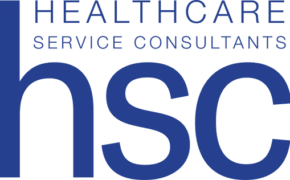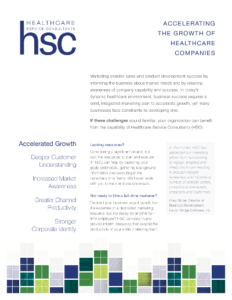Table of Contents
Healthcare IT startups face a number of challenges that established companies have long overcome. Without a well thought-out plan in place, young companies are more likely to flounder and make avoidable mistakes.
At Healthcare Service Consultants we have gained a lot of experience in this area, having helped 11 startups either enter the U.S. healthcare IT market or accelerate their commercialization efforts. This included some international companies that needed guidance about the specifics of the U.S. healthcare marketplace.
1. How Much in Advance Should You Plan?
As a general rule, healthcare IT startups requiring 510(K) approval for their product should begin planning their commercialization efforts 10-12 months before they expect to get FDA clearance. If the startup is selling a product that does not require FDA clearance, they should still start planning 10-12 months prior to their external product launch date.
Allowing this amount of time enables a startup to develop their go-to-market strategy and begin implementing so they will be in a position to sell immediately once they receive clearance or reach commercial product launch.
2. Remember, Technology By Itself Isn’t “Enough”
Each step in creating strategy serves a focused purpose beyond just “writing it down.” Underlying it all, healthcare IT startups have to understand what it takes to “make it” in the U.S. market. The thought process that goes into strategy development should force the appropriate questions to be answered. Novel technology isn’t enough. You can have the most forward-thinking, AI-powered product out there, but without the right strategy or the right support, it may never get off the ground.
Here are four areas to focus on in the months leading up to your go-to-market green light.
2.1 Channel
An important decision startups have to make is which channel they will use to sell through. Is the product or solution best served to sell direct to healthcare providers/buyers? Through OEM or VAR partners? Could you benefit from using a hybrid approach of using both direct and third-party?
Identifying the channel that adds the greatest value to your product is critical. Then, building relationships with external partners needs to begin early on in the process. So does hiring and training your sales people, if you intend to employ your own sales force.
Part of those processes also involves doing additional research to confirm the clinical and/or operational benefits of your product. You’ve likely already done some—as part of your FDA submission. Now is the time to expand the details.
2.2 Buyer Personas & Competitive Analysis
You’ve created a product that solves a problem. Who has that problem? Why is your solution valuable to those buyers? What might trigger them to buy your product? These are all considerations that go into building and understanding your buyer personas. You must understand their pain points and role in the buying process so you can build messaging that resonates with them. This reflects the outside-in approach to marketing from last month’s blog.
This planning period is also great for performing a competitive SWOT analysis. And, seeking out external expertise from research collaborators and key thought leaders.
2.3 Product Roll-Out
Planning is all about being prepared. While some of the logistical elements of product roll-out can’t truly be implemented until you start selling, there’s a lot of behind-the-scenes prep that still needs to take place, including:
- Product Positioning
- Service & Support Plan
- Pricing Strategy
- Packaging
- Promotional Strategy
One more consideration for healthcare IT startups is to think about how the product should evolve over time. Will you eventually create a suite of solutions? How does the problem you will initially solve relate to other adjacent problems?
2.4 Marketing “Light”
Even if you’re not yet actively selling, you can still start to create a presence in the market. Do some light marketing outreach to start creating awareness of the problem you plan to solve. Help your target audience understand the problem they have and why you’re uniquely equipped to solve it. Planting these seeds early on is especially valuable if you’re solving a new/unique problem of which buyers themselves may not be aware.
An additional marketing tactic at this stage is to publish thought leadership materials. Write a white paper that highlights your clinical understanding. Or, publish scientific papers with your initial collaboration partners to validate the science behind your solution. Anything to create credibility amongst early adopters that may also generate interest from investors.
3. Make the Most of Your Planning Phase
Even the most ambitious, ingenious startups should expect to have an uphill battle to get to market. Many healthcare IT startups have the added step of obtaining FDA clearance. What happens in the initial planning stage can dictate whether the path forward is successful or not.




